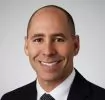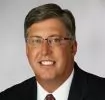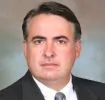As the City of Detroit welcomed the North American International Auto Show last week, Foley & Lardner LLP hosted industry leaders at its annual Automotive Forum for a discussion of the critical areas spanning business and legal issues facing the automotive industry – including alternative powertrain technology, planning for the EV transition, potential impact of labor issues, and more.
Phil Phillips opened the event with welcome remarks before Robert Okonowski walked the audience through the agenda for the forum. Jon Gabriel then introduced the keynote speaker, Pat Staarmann, Director of Sales for the Americas at PHINIA, the NYSE-traded company recently spun-out of BorgWarner with globally recognized brands in fuel systems and the aftermarket, including Delphi, Delco Remy, and Hartridge. Pat's remarks highlighted the need for sustainability in the next generation of internal combustion engines, the path towards a carbon-neutral future, and PHINIA's place in the evolving industry. He emphasized in particular PHINIA's embrace of alternative fuels, especially hydrogen. The keynote address was followed by a fireside chat with Pat hosted by Jon, during which they discussed PHINIA's established value proposition for its customers and its growth opportunities, along with the future of combustion systems, the limitations of the battery-electric vehicle model, and the development of hydrogen fuel technology.
The fireside chat was followed by a discussion about the impact of labor strikes, led by Jeff Kopp and Felicia O'Connor. Jeff and Felicia's comments addressed the impending UAW strike. Jeff first outlined the UAW's goals in the current strike. These included cost of living adjustments (COLA), a move towards the elimination of work tiers, and potential limitations on the number and use of temporary employees. He also discussed the ongoing offers by the big three automakers. Felicia then discussed past UAW strikes, highlighting the differences between the 2007 and 2019 strikes and the 2023 strike. Felicia pointed out that the UAW plans to employ a much more targeted method of striking ("stand-up strikes") than has typically been used in past strikes. In response to a question posed by an audience member, Felicia closed the segment by providing steps that audience members could take to prepare for the strike. She encouraged them to keep in close contact with HR to understand the far-reaching impacts of potentially losing employees, to be aware of the potential for sympathy strikes even in companies not connected to the current businesses subject to the UAW strike and to be prepared for labor effects even far downstream of the strike.
Discussion regarding the impending UAW strike carried over into the next portion of the program, a panel discussion about supply chain resiliency, moderated by Kurt Nagl of Crain's Detroit Business with panelists Steve Wybo, Senior Managing Director – Automotive at Riveron and Vanessa Miller, Partner at Foley. Steve opened by discussing the relative current fragility of the supply base going into the 2023 strike contrasted with its relative strength going into the 2019 strike. He discussed the danger the strike poses to mid-level suppliers and predicted trouble for the industry if the strike lasts longer than 4 weeks. Vanessa discussed the difficulty suppliers will experience restarting the industry even after the conclusion of the strike, highlighting that due to the current leanness of the industry, suppliers will have no way of keeping their labor force intact during the strike. This will be acutely felt when volumes increase again after the strike concludes. The panel then turned to electrification, discussing the wide variation in supplier anxieties and their relation to suppliers' products and platforms, before concluding with a Q&A session. Audience members posed questions about concrete advice the panelists had for suppliers in light of the coming strike. In response, Steve and Vanessa urged suppliers to use time wisely during the strike and build up a "safety stock" of inventory.
The forum concluded with a discussion of economic incentives for electric vehicles, electric vehicle batteries, charging stations, and other activities adjacent to supporting the move to electrification presented by Lynn Gandhi, Partner at Foley. Lynn discussed eligibility for federal and state tax credits, as well as the programs adopted by states to provide grants, direct payments, and other forms of above-the-line financial assistance for manufacturing facilities. These include incentives for the development of clean hydrogen hubs, hydrogen fuel and storage, and related infrastructure.
As the industry continues to deal with the effects of the UAW strike, as well as the continued transition towards electrification and alternative fuels, Foley is monitoring developments and keeping stakeholders up to date. To stay informed, subscribe to our Automotive Blog, and Dashboard Insights by clicking here.
The content of this article is intended to provide a general guide to the subject matter. Specialist advice should be sought about your specific circumstances.











